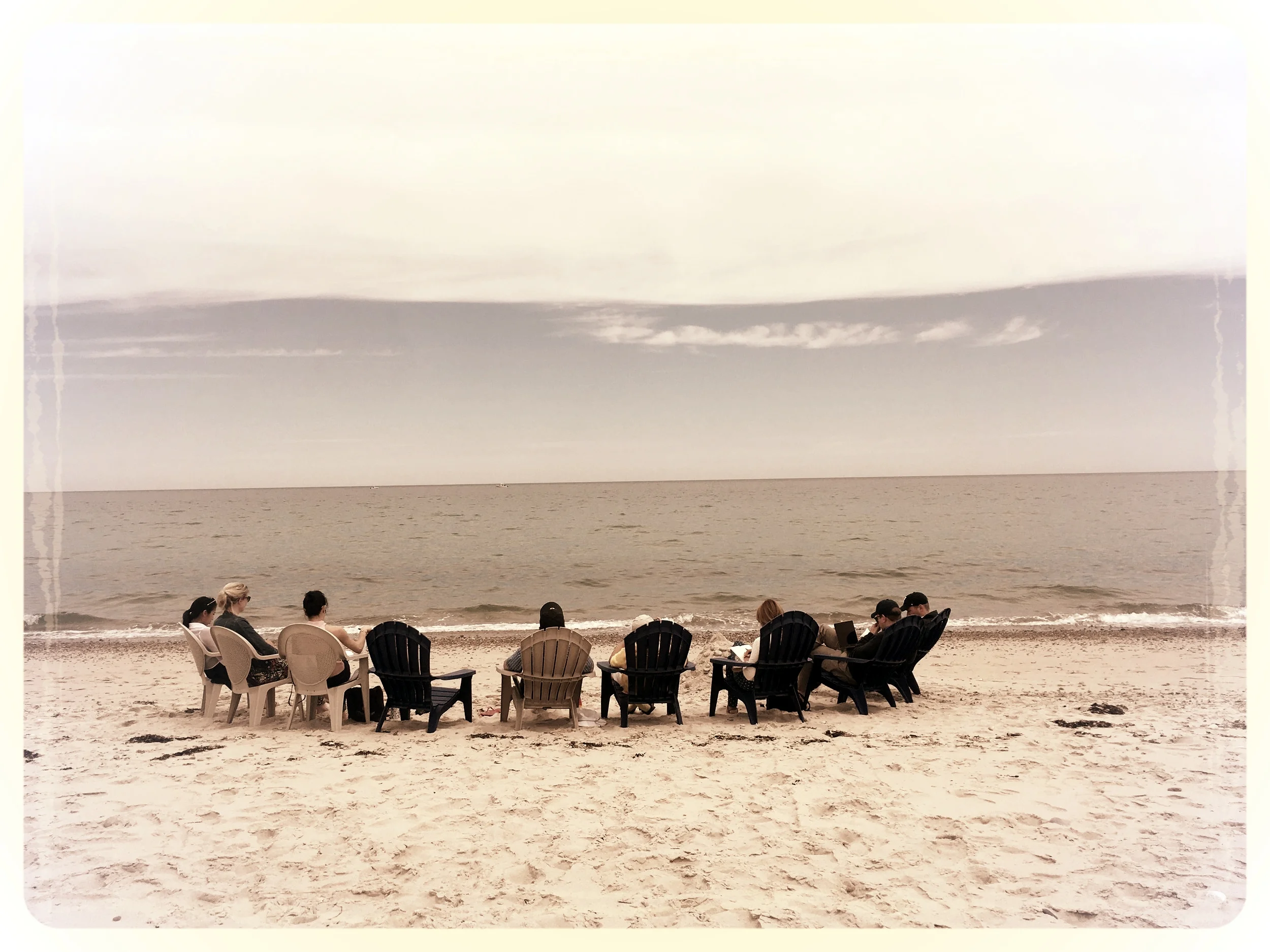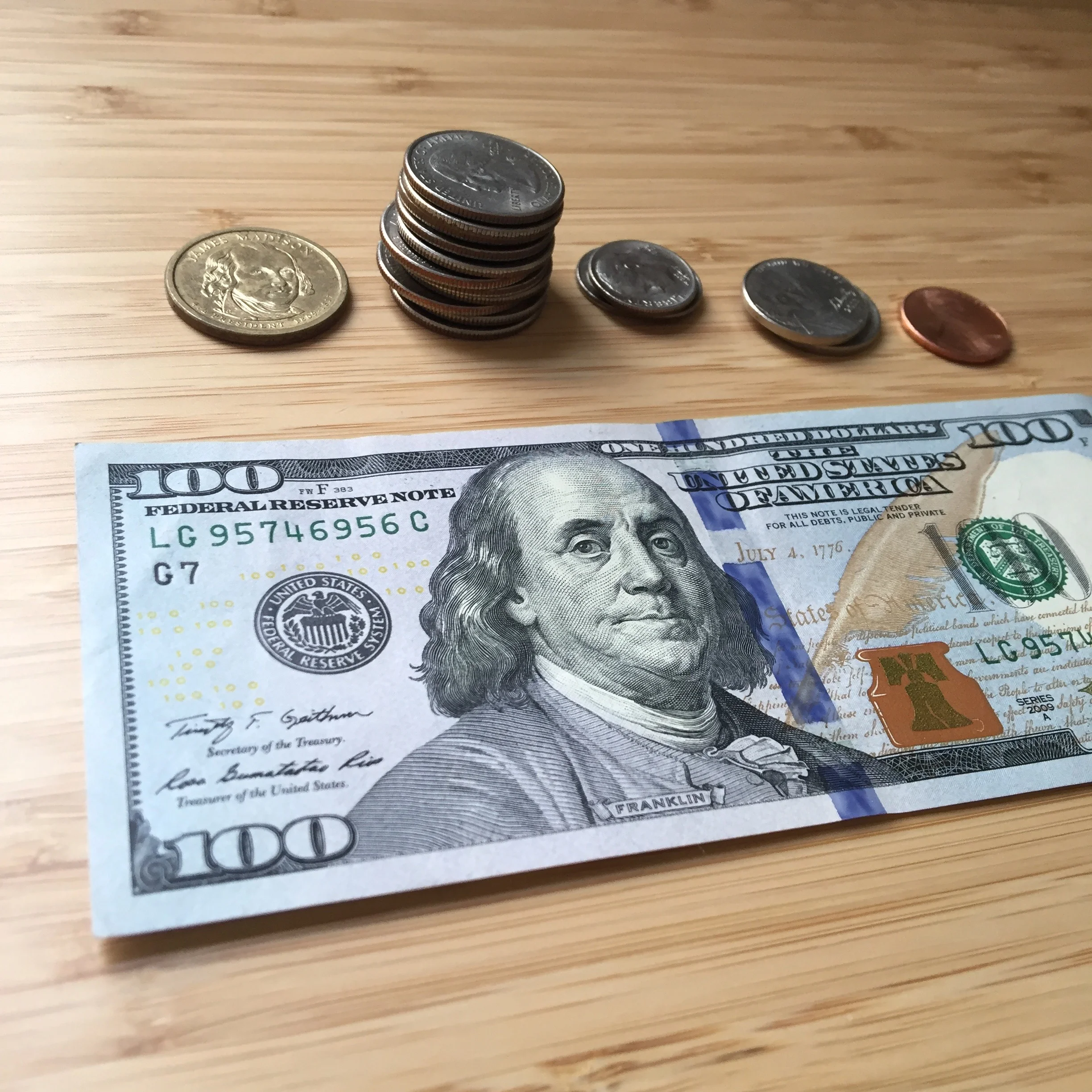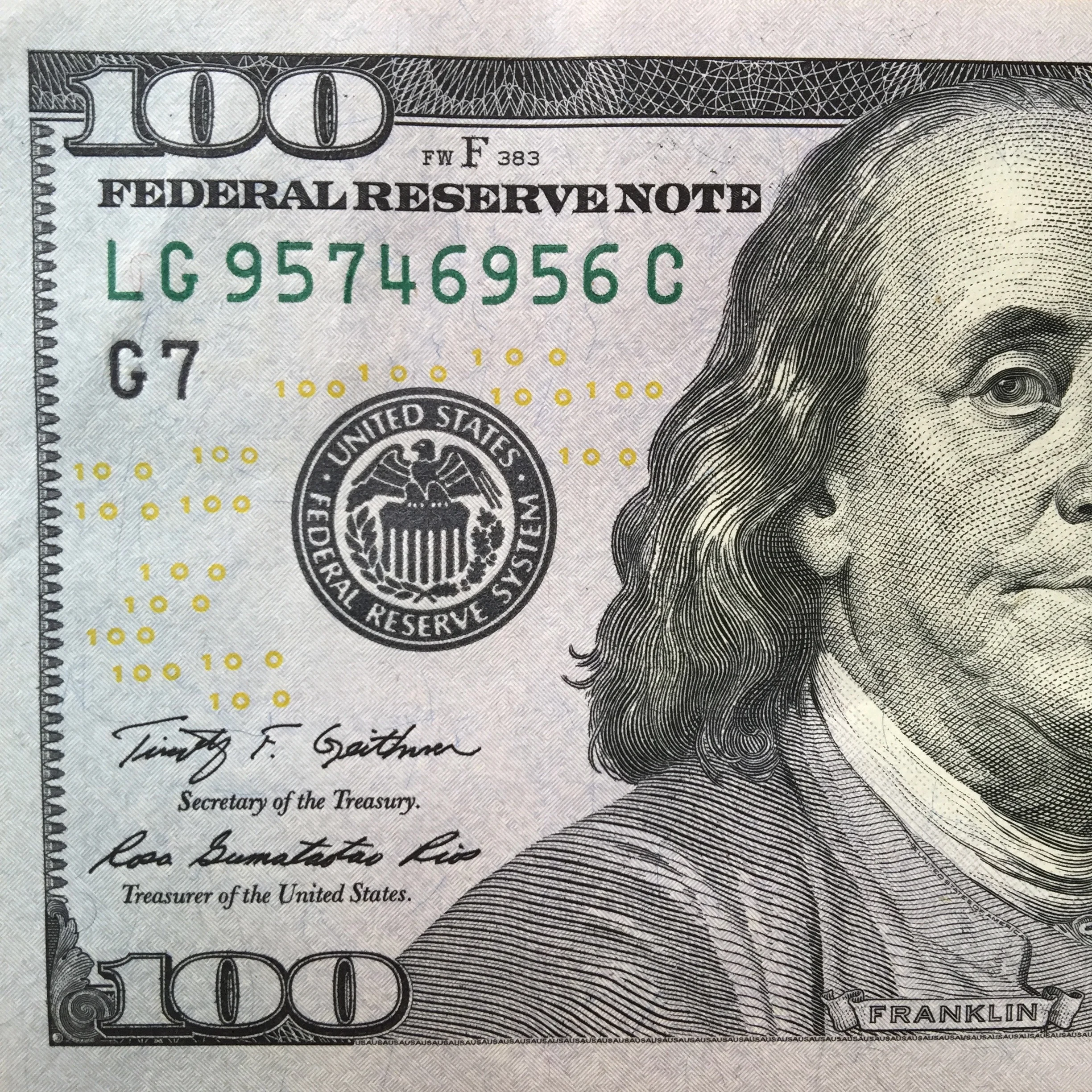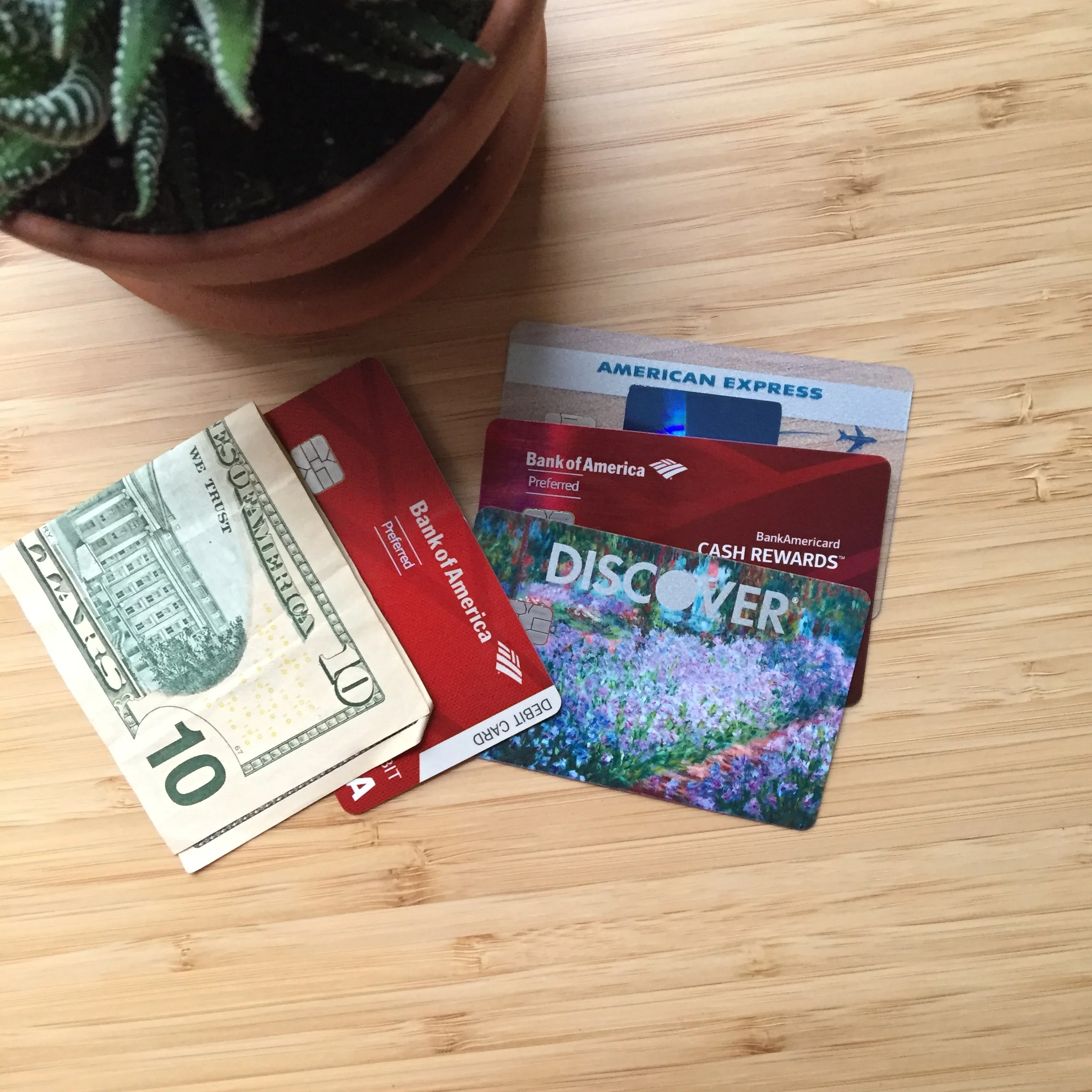First, a preface to this post:
It does not matter if you are in your teens, 20s, 30s, or 40s (or any age, for that matter) while reading this. Regardless of your age and current financial standing, I believe there is something you can take away and perhaps integrate into your current lifestyle. The concept of money likely means something different to different people. I, for one, see money as a means of obtaining certain commodities that I want for my lifestyle. Money is something I earn through my work, which involves me using skills I have learned and honed, and working with people whom I care deeply about. Money is regularly on my mind as I budget for big-ticket events like my upcoming wedding, and long-term investments like a house, a car, and also my retirement. Although I pay much attention to money and how I use it, money is not the driving factor behind what I do. In other words, I don’t live to make money; I earn money so that I can enjoy the life I want.
For some people, money equals happiness. The more money you make, the happier you are. That was never me (hello! I’m a teacher!). Money is not something I aspire to have to directly make me happy, although I do believe that, to sustain happiness, you will need some amount of money in order to cover the basics of your cost of living and to support your hobbies. I admit that I do get excited when it is payday, and I receive an automatic deposit into my checking account. I am happy when I get paid, not because I suddenly feel richer, but rather because I get to look up a nice restaurant or a new museum that I want to visit. And then I go together with Max, just like that. I get excited because I get to treat myself and someone else to the “fruits” of my efforts, and that brings me joy and the feeling of fulfillment. Because I earned it. And because I do not have student loans to pay back (thank you, mom and dad; thank you, Yale University for the benefits my parents received; thank you, Wellesley, for work study opportunities; thank you, Cheshire community, for the many generous scholarships you awarded me with).
Because of my viewpoint that money has value when you earn it, I feel strongly against the act of wasting money, and I am always suspicious of “free money” (which, by the way, is different from earning “passive income”). Growing up, I did not receive an allowance from my parents. If I wanted to earn some money, I would need to contribute more time to doing chores around the house. As a kid, I did not think it was fair, because many of my classmates and friends would receive a generous allowance and they did not have to work for it. As a young adult, however, my perspective changed and I felt grateful that my parents insisted on me working for my money because it gave me a feeling of self-worth and self-respect from earning an income through my efforts. Soon enough, I recognized that doing additional simple chores was not the most economical way of earning money. So in high school, I learned to use my other acquired skills (more mental than physical) to a little bit of income. I started tutoring privately through a neighborhood company, earning $25/hour for helping middle school and high school students with math and Spanish. Also, through a string quartet that my friends and I had formed back in middle school, we played at dinner receptions and weddings and earned ourselves not only a generous paycheck but also a delicious meal. In high school, I spent much of my time volunteering, and that eventually turned into a job opportunity, in which I served as the volunteer coordinator at a non-profit organization. I earned a little more than minimum wage for that position, but it was a steady one and one that had personal meaning to me.
Since I earned and still continue to earn my money through my efforts, I take care not to waste it. Some people might consider spending a generous sum of money on a particular item, such as a pair of shoes or another article of clothing, a waste of money. I do not. I see it as a splurge or an investment in something that has special meaning to you. This can be a healthy thing you do for yourself every now and then. When done in moderation, it is OK. I have splurged on shoes and coats that I know will last me a few decades, if not a lifetime (assuming I don’t double in size). What is wasteful to me, however, is paying extra when you don’t need to. People often do this because they are not aware that they are paying extra. That awareness and knowledge comes with doing your research, living through experience, and learning from them, as well as from others. You owe it to yourself to pay attention and to learn, so that you can use the money you save (however small; it adds up!) and put it towards something with greater meaning to you. So, let’s begin.
The Strategy
I am intentionally calling this a strategy rather than a collection of tips on saving money, because there is a fine difference. According to Merriam-Webster, a strategy is “a careful plan or method for achieving a particular goal usually over a long period of time.” This suggests committing to take on a more active role in the process of saving money, rather than haphazardly trying out different tips. Learning to save money requires you to adopt a certain mindset and to have an awareness of the value of money. Depending on your upbringing, you might already have this mindset or you might find what I share with you to be new and refreshing (or perhaps strange?). I hope to show and teach you some skills in making and carrying out a plan to achieve the goal of saving money on everyday expenses. Please note that this is not a “saving for the future/retirement” financial guide, although that is certainly on my radar to write one of these in the future. Please also realize that this list is not exhaustive, and that I will continue to update this page with examples. What should remain constant, however, is the mindset underlying it all. Oh, and there will be a “Part 2” coming up. I did not want this post to be too long, or else it might lose its effectiveness.
- ONE: Get into the habit of buying items in bulk. This applies to all kinds of household items like personal hygiene products, kitchen products, and cleaning products. If you are a student or living alone, you can still do this; simply make a single purchase and split the items among friends or colleagues and share the cost. For example, buy toothpaste and shampoo/conditioner in bulk. Also consider buying paper towels and Lysol wipes in bulk. The same goes for snacks and office supplies---you can get them in bulk as well. When I was in college, my family was still living in Connecticut, and there was Costco. My parents had a membership to this wholesale warehouse and would buy everything there in bulk. Many of the items I needed for college were purchased there, and they lasted me a long time. Unfortunately, getting a Costco membership (or a Sam’s club or BJ’s membership), in my honest opinion, is not cost-effective when you are single or living with a partner, unless you share the membership with another family or couple. Despite this, you can still purchase items at regular stores in bulk---they will just be smaller bulks. Here are some examples of items I’m currently buying in bulk for Max and me: toothpaste, floss/flossers, electric toothbrush replacement heads, hand soap refills, feminine products, face wash, lotion, toilet paper, cleaning wipes, paper towels, laundry detergent, dishwasher pods, dish scrubbers, Starbucks bottled “Frappuccino,” ZipLoc bags, packing tape, pens, correction tape, staples, paper clips, you get the idea… There are some exceptions, however, to this general approach (there are ALWAYS exceptions). For instance, I would discourage buying cosmetic products for yourself in bulk, because most come with a relatively short expiration time. As someone who does not wear much makeup, this was my own experience.
- TWO: Use different credit cards for different purchases. I introduced the benefits of using a credit card in this earlier post and hinted at additional benefits of credit cards. One of the other main reasons I use them is that they often come with perks---the more prestigious the card (and sometimes higher the fee), the better the perks usually. I reserve certain travel cards for transportation expenses, so that I can accumulate miles for my flights home. I use my Discover and Chase cards during certain specified months to earn “5% cash back” in select categories. For example, this month I have been using my Discover card exclusively at restaurants because that was one of the categories for the month of August and September. Other categories include the following: online shopping, department stores, gas, and home improvement. As of now (September 2018), Chase Freedom is offering 5% off on gas, LYFT rides, and Walgreens (see its 5% cash back calendar here). I will use one of my American Express credit cards for grocery store purchases because there is currently a promotion where I receive 10% cash back up to a certain amount on eligible purchases. For up to 6% cash back on grocery purchases, the American Express Blue Cash Preferred card is awesome. I used to own this card when there was a promotion and the annual $95 fee was waived. If you are eligible, you often do get an intro bonus of $250 if you spend a certain amount within the first three months of account opening (which makes the $95 fee tolerable for the first year). There is a version of the card (not "preferred") without an annual fee, but the cash back is not as great. Next, I use my Nordstrom store card for all Nordstrom retail purchases I make, so that I can earn reward points that accumulate and convert into “notes” that serve as gift cards. As someone who built up her professional wardrobe with the help of Ann Taylor/LOFT, J.Crew, Macy’s and Marshalls/T.J.Maxx/Home Goods, I also hold credit cards with these stores and use them accordingly for their many specific perks. I reserve my Bank of America credit cards for all other purchases, or for when I am not sure. I still earn cash back but the percentage is lower. So as you can see, every card in my wallet serves a purpose. The challenge is to keep track of which card to use for what and be intentional about using the cards accordingly. If you are a disorganized person, or if you prefer just having a single credit card with which to make all your purchases, then this might not be for you. In addition, I would NOT recommend applying for a bunch of credit cards at the same time; this will not only hurt your credit score, but also likely set you up for rejection by at least some of the credit card issuers. More on this in a future post!
- THREE: Use your student, educator, or employee discount. Most museums nationwide in the US (and I believe also internationally) offer discounted admission to students (with valid ID) and sometimes to educators. As a student studying in New York City, I am taking full advantage of my doctoral student status when visiting the many world-renowned museums---the joys of being a lifelong learner! For example, to visit the Cooper Hewitt Design Museum, a ticket costs $16 for adults, but only $7 for students and $0 for youth under 18! That is amazing. Moreover, when I studied abroad at the University of Vienna in Austria, I bought a steeply discounted “semester transportation pass” that saved me hundreds of euros, given how frequently I used the trams, subways, buses, local and regional trains, etc. Furthermore, I took advantage of my “under 26” status and stayed at youth hostels when backpacking with Max in Europe. I think we paid between 10-30 Euros at each of the hostels we stayed at in Rome, Florence, and Nice, where the hotels, inns, and B&Bs were not friendly with our budget. We had an awesome experience and would not mind youth hostels, except that we are no longer eligible. Gosh, are we really getting older? Bummer!
Back to learning discounts: if you are an educator, you can get discounts at retail stores like J.Crew, Ann Taylor, H&M, Staples, and even Verizon Wireless. Here is a page maintained by Business Insider that shares a long list of retailers that offer discounts to teachers (and sometimes to students too). When in doubt, it does not hurt to ask a store associate. Finally, if you are an educator, definitely make use of the “National Education Association Member Benefits” (NEAMB) website, which has a plethora of discounts and benefits, such as on movie tickets and magazine subscriptions.
- FOUR: It pays off to work hard in school. Perks are not limited to credit cards; they also come with being a good student. When I switched over from being under my parents’ car insurance plan to paying for my own auto insurance, I was able to save some money simply for being a good student. I bought insurance through Geico, but other companies offer the same “good student discount.” The requirements are pretty basic: you have to be under 25, be enrolled as a full-time high school or college student, and maintain at least a 3.0 GPA or be on the Dean’s List. The discount I received was not a huge discount, but it was something and I was grateful because auto insurance under your own name as a young adult is expensive.
- FIVE: Save and use coupons and promotional codes. There is no shame in being a “coupon person.” My mom was always one, and although I was embarrassed by it as a kid (I’m not sure why…?), I have become one, too, and I embrace the title, although I prefer “smart shopper” to “coupon person.” Nowadays, being a smart shopper does not necessarily mean that I physically carry clipped coupons wherever I go because, let’s be honest, how many of us actually remember that we have a coupon for that yogurt or toothpaste when we go grocery shopping? Fortunately, there are built-in apps and websites to help with that. I personally like to use the “Honey” extension when shopping online (referral code: click here). What is it? Honey is a browser extension that you can get for free, and what it does is automatically look for and apply coupons and promotional codes for hundreds of stores every time you are ready to checkout. It is great because sometimes I don’t know if there is a promotion happening, and Honey will find it for me without me looking. If I am on a site that supports Honey, the little Honey icon will light up bright orange on my browser (FYI: I use Chrome) to get my attention. I also like using Honey on Amazon because it lets me know if there is a price drop on an item on my watch list or in my cart. It even gives me the history of prices on that item in the form of a graph (I love my graphs) so I am informed about whether the current price is too high (hold off on buying) or too good to be true (check out ASAP). Additionally, it will search for better options for me if they are available. Another bonus is that you collect points for all successful purchases made with Honey activated, even if you do not end up finding a promotional code. So, truly, it is a win-win each time.
More recently, I’ve heard good things about “Ebates” (a cashback website through which you can shop at over 2500 stores like Macy’s, Walmart, CVS, Kohl’s, and even Amazon and eBay). I have not yet signed up for account, but plan to soon to see what it is all about. Apparently, upon signing up you receive a $10 Walmart gift card or $10 cashback coupon. Isn’t this “free money,” you ask? Well, sort of. If you read the fine print, you quickly learn that the $10 applies to any purchase over the amount of $25 within 90 days of signing up. Therefore, technically yes, it is free money, but there are restrictions. Plus, you totally deserve it, since you earned it through your efforts to inform yourself.
So there you have it---Part 1 of my money-saving strategy. I will be posting Part 2 at a later time. In the meanwhile, consider adopting the smart shopper mindset if it makes sense for your lifestyle and let me know what you think! If you have other money-saving advice, let me know in the comments section below. There is a good chance I have it already covered for Part 2 of this guide, but I may very well have overlooked something too :)
Thank you for following along!
-Catherine






